
On July 21, 1925, the last day of the trial, Darrow asked the court to find Scopes guilty in order to appeal to a higher court. The jury returned a guilty verdict, and Scopes was fined $100. Bryan and the ACLU offered to pay this fine, showing how the trial was less of a competition to win but more of an effort from the prosecution, a fundamentalist, and the defense, a modernist, to appeal to the thousands who were watching.
After the verdict, John Scopes delivered his only statement:
"Your Honor, I feel that I have been convicted of violating an unjust statute. I will continue in the future, as I have in the past, to oppose this law in any way I can. Any other action would be in violation of my ideals of academic freedom, that is to teach the truth as guaranteed in our Constitution, of personal and religious freedom. I think the fine is unjust."
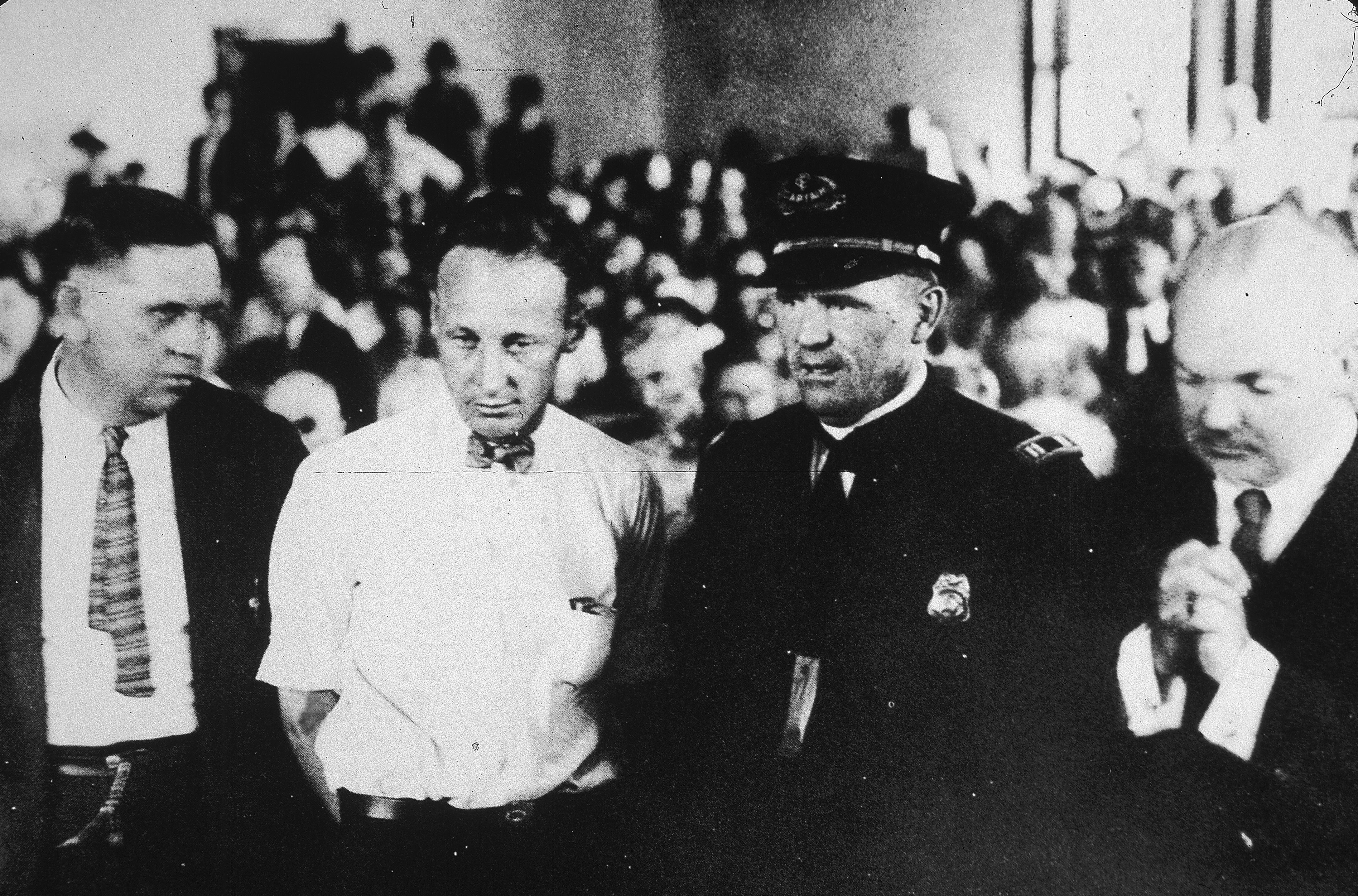
Scopes (center) waiting for verdict, 1925, Smithsonian Archives
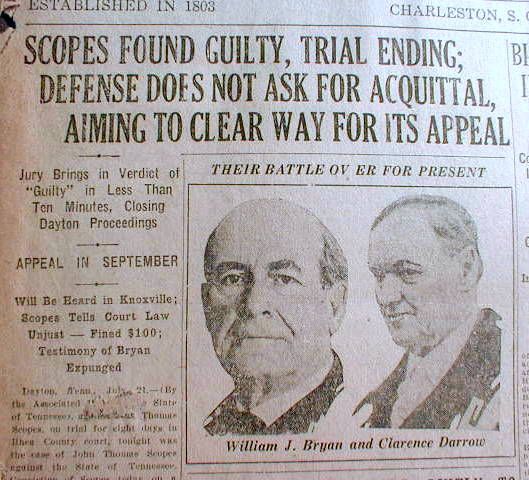
Scopes receives guilty verdict, 1925.
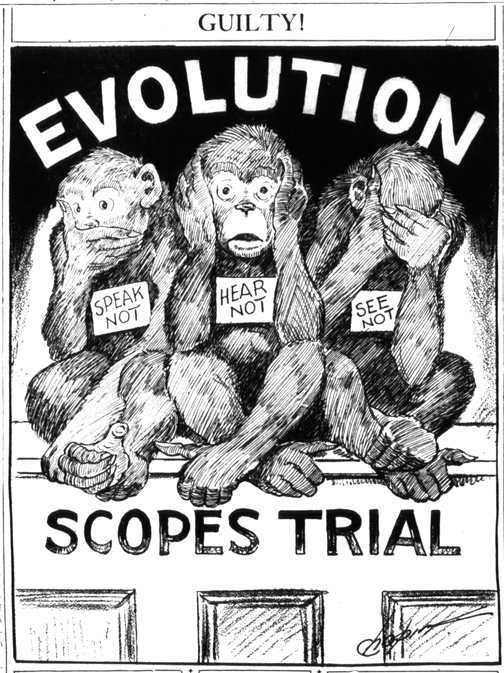
Referencing trial's decision, 1925, San Francisco Examiner
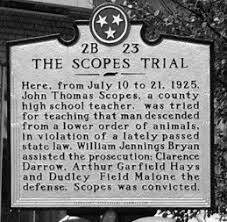
Sign outside of Dayton court,
UMKC School of Law
A year later, the Tennessee Supreme Court reversed the court’s decision not based on the Butler Act’s constitutionality but on a technicality that the $100 fine set by the Judge should have been set by the jury. The case was dismissed with the Butler Act still imposed till 1967 but never again enforced.
Although Bryan won the case, Darrow succeeded in arguing a case for evolution and in the sight of the press, he won the argument. The Scopes Trial started off as a publicity stunt but became the “trial of the century,” attracting the press and engaging citizens in a national conversation to address the question that would either pull the U.S. back into the fundamentalist world of yesterday or push it forward towards the awaiting modernist tomorrow.
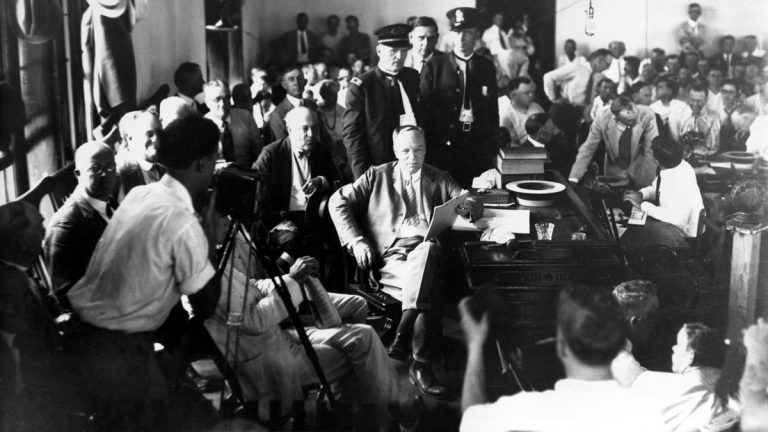
.A view of the press surrounding the judge and lawyers, 1925, Library of Congress
"[The trial] was a very important weathervane for understanding the changes that were taking place in the United States."
~ Lawrence Levine